- Home
- Kristi Belcamino
Death on Sunset Hill
Death on Sunset Hill Read online
Death on Sunset Hill
Tommy St James Mysteries
Kristi Belcamino
Published by Kristi Belcamino, 2017.
This is a work of fiction. Similarities to real people, places, or events are entirely coincidental.
DEATH ON SUNSET HILL
First edition. November 28, 2017.
Copyright © 2017 Kristi Belcamino.
Written by Kristi Belcamino.
Table of Contents
Title Page
Copyright Page
Death on Sunset Hill (Tommy St James Mysteries)
DEATH ON SUNSET HILL
CHAPTER ONE
CHAPTER TWO
CHAPTER THREE
CHAPTER FOUR
CHAPTER FIVE
CHAPTER SIX
CHAPTER SEVEN
CHAPTER EIGHT
CHAPTER NINE
CHAPTER TEN
CHAPTER ELEVEN
CHAPTER TWELVE
CHAPTER THIRTEEN
CHAPTER FOURTEEN
CHAPTER FIFTEEN
CHAPTER SIXTEEN
CHAPTER SEVENTEEN
CHAPTER EIGHTEEN
CHAPTER NINETEEN
CHAPTER TWENTY
CHAPTER TWENTY-ONE
CHAPTER TWENTY-TWO
CHAPTER TWENTY-THREE
CHAPTER TWENTY-FOUR
CHAPTER TWENTY-FIVE
CHAPTER TWENTY-SIX
CHAPTER TWENTY-SEVEN
CHAPTER TWENTY-EIGHT
CHAPTER TWENTY-NINE
CHAPTER THIRTY
DEATH ON THE BIG MUDDY
CHAPTER ONE
CHAPTER TWO
CHAPTER THREE
About the Author
Sign up for Kristi Belcamino’s Reader Group
and get this novella for FREE.
Sign up here.
DEATH ON SUNSET HILL
A Tommy St. James Mystery
By Kristi Belcamino
CHAPTER ONE
Dark stormy clouds swooped in from the west on a cool breeze, making Jackie Chandler hesitate, glancing back at the office building where she worked.
She caught a glimpse of some coworkers at the picnic table out front scooping up fast food bags and jumbo soft drinks and scurrying inside.
“Screw it,” Jackie said, pulling back her shoulders as she stepped onto the wide walking path in front of her building.
Five years ago, she’d been eighty pounds overweight and would’ve been happy sitting there with the rest of them stuffing her face, but things had changed.
Glancing down to admire her trim stomach, Jackie started up the trail. Every day at lunch she followed the paved path bordering the cemetery up to Sunset Hill. At the top of the hill was a small graceful meadow overlooking the skyline of downtown Minneapolis. From there, the trail curved between the cemetery and golf course eventually winding around the far edge of the cemetery and bringing Jackie in a full circle back to work.
It took Jackie about forty-five minutes to make the loop.
As she passed the looming fortress of buildings that housed the plastics plant, a man in jogging shorts ran by, startling her for a second. She held her breath as a whiff of sweat and aftershave cascaded in his path. Casting another glance at the ominous sky, an irrational trickle of fear ran through Jackie. But she shook it off. It was just a summer storm. She was being silly. That other jogger knew it wasn’t a big deal. A little rain wouldn’t hurt anyone and she was no dummy, she’d brought a small umbrella to shield her makeup and hair if the skies did open up.
She was prepared. Nothing would stop her from getting her daily dose of exercise. Not if she wanted to keep her body toned and tight. Now that she was in her forties, that level of discipline was crucial.
Besides, staying indoors because the clouds threatened a bit of rain was for wimps. After all, this was Minnesota summer. Get used to it: Hail one minute. Blistering heat the next. No reason to hunker inside over storm clouds.
Besides, now she’d have the two-mile loop all to herself, no dodging sweaty joggers or trying to maneuver around clumps of older ladies out for a leisurely stroll. Even Jackie’s walking buddy, Sheryl, had begged off, looking up at the sky suspiciously and then saying she was going to eat lunch at her desk and read her new Jess Lourey book.
Today, Jackie could keep up the pace she liked and maybe get back to the office in time to fix her makeup in the bathroom. Sheryl could be the one trying to squeeze into those shorts at the company picnic later this month. Not Jackie. The thought of wearing her swimsuit to the picnic at the lake made Jackie pick up her pace. The jogger who had passed her was now a distant speck at the top of the steep hill. As he passed a large tree, a murder of crows took to the air. Instead of settling back down in the branches, they formed a posse weaving in and out of the tree, attacking a hawk that had dared to settle on a bare branch.
That’s one thing Jackie loved about Northeast Minneapolis. Her daily lunchtime walk often included wildlife sightings. The area was known for its cemetery crows, albino squirrels, and flocks of wild turkeys. In addition, the neighborhood had red foxes, hawks, and occasionally you could even spot a bald eagle, of all things.
The grassy plateau at the top of Sunset Hill offered one of the most stunning views of downtown Minneapolis to be found. And anytime there was any sort of meteorological event: shooting stars, eclipses, and full moons, the parking lot at the plateau would be filled with sightseers.
On one side of the plateau, the I35W freeway stretched into downtown Minneapolis. On the other side, sweeping across the rolling hills below, lay Hillside Cemetery, which butted up against Sunset Cemetery.
It wasn’t unusual during Jackie’s walk to come across funeral processions. That didn’t bother her. But the gravediggers, did. Once, a shirtless man in his thirties stopped digging to admire her through the black iron fence as she passed. His arms were covered in tattoos. Although his eyes were hidden behind dark sunglasses, he made his interest apparent, keeping the small shovel resting on his shoulder as he smiled at her. While it was flattering to Jackie, who had just turned forty-seven, it also kind of gave her the creeps to see a hunky young man, chest-deep in an open grave checking her out.
Another time, she was struck by the serendipity of two funeral processions passing one another on opposite sides of the roadway. The first one was headed up by a motorcycle cop, and then followed by a black hearse and a stream of cars. Right where Jackie stood, this first procession met up with the other: a police car leading a white hearse and then a stream of cars. The yin-yangness of the whole thing was a trip, Jackie thought. When she got home from her secretary job that night, she sat down at her old computer and wrote a short story about it.
Thinking of the hearses that passed her, Jackie remembered the letter she’d received the day before. It worried her a bit, but really there was nothing she could do about it. She couldn’t control what other people thought or felt. The only thing she could control was how she acted. And Jackie tried really hard to be nice to everyone she ran across and to treat everyone, even the homeless people, with respect. It was the right thing to do.
She knew what it was like to be obese and have people treat her poorly because of it. She would never ever be like that to someone. She would never judge somebody by his or her looks.
Although she wasn’t very far into her walk, the gloomy skies had turned the entire area dark like dusk, triggering the orange streetlights. That, and the utter desolation of the path today, prompted Jackie to dial her new husband. Well, he wasn’t exactly new. They’d been married six months. But compared to her old, ex-husband whom she had been with twenty-five years, this one was new.
“Hi,” Jackie purred into the phone. �
�How’s your day going, lover boy?”
Her husband, Don, chuckled. “Pretty good after the way you woke me up this morning.”
“Well, there’s more where that comes from.”
“Don’t I know it!”
As she talked, out of the corner of her eye, Jackie thought she saw a silhouette duck into the thick brush that formed a wall to the right of the sidewalk on the hill above her. The brush area lasted about three blocks—a dense overgrowth area that reached up twenty feet, shading that area of the path and blocking out the sun, when there was sun. She squinted but didn’t see anything. Today was so dark she couldn’t trust what she saw.
Brushing it off as her overactive imagination, Jackie returned her attention to Don. They talked about their plans for the weekend: a visit to the Guthrie Theater and maybe a stop at the Mill City Farmer’s Market.
“So, honey pie, any idea what we should fix for dinner?” Don said.
But Jackie didn’t answer. Couldn’t answer. Didn’t have a chance. Only felt blinding pain and cool pavement on her cheek.
Her phone lay on the sidewalk shattered. Her mouth opened to scream but something fuzzy against her lips prevented any sound. She tried to move her arms. She realized they were yanked behind her back, immobile. She began to kick. She was able to connect with something solid before her insides exploded in pain. She doubled up, crunching into a small ball, weeping and wailing soundlessly, her eyes blurry with tears. Her phone seemed so close. If only she could get to her phone. It was an iPhone X. Rose gold. Top notch. Owning it was a dream come true. The screen was shattered, but she knew that could be fixed. She inched her head toward it, but as she did, her body was pulled away with a jerk. Her mouth opened to scream, but her breath was gone, pummeled out of her body somehow. She kept her eyes trained on the phone as she was dragged into the bushes, sticks and bushes ripping at her bare flesh. She gaped at her phone, open-mouthed, unable to scream, watching as the small metal rectangle grew smaller, knowing with all her being that the voice on the other end—her husband—was the only thing that could save her now. She painfully twisted her head as she was dragged through the underbrush, keeping her eyes trained until she could no longer see that small glimpse of rose gold glittering in the orange street light.
CHAPTER TWO
Before hopping out of her Jeep, Tommy St. James stuck her big cardboard “Press” sign in her windshield and grabbed her camera case and cell phone.
Parked behind a line of squad cars, the yellow crime scene tape was about 100 yards up a steep hill. Her three-inch-high St. Tropez espadrilles weren’t really cutting it, but Tommy hurried. Cameron Parker, the police reporter from her paper, waited at the crime scene tape.
“Glad you could make it, Snap,” Parker said with his trademark smirk.
“Sorry. I was asleep. Unlike you, I go to bed early.”
“Going to sleep at ten o’clock only tells me that you need something better to do in your bed than sleeping.”
He ruffled her long red hair playfully, but she swatted his hand away.
“Nice try, Romeo. Remember, we tried that? I don’t date players. Or sleep with them.”
“Aw, come on, T.J., don’t be sore. Besides, you’re the one who ditched me as soon as you met Mr. Hot Detective.”
Deciding not to dignify that remark with an answer, Tommy got out her heavy-duty flash and screwed it onto the top of her digital camera. She peered up at the dark, starless sky.
“Geez, even a sliver of moon would help. It’s going to be impossible to get a good shot.”
“Nice to see the bottom feeders made it,” a voice said.
Tommy turned to see Sgt. Matt Laughlin sneering at her from thin lips that poked out from under his gray walrus moustache. He grunted and pushed by, shoving his bulk against Tommy hard enough to cause her lens to whack her cheek. Ducking under the crime scene tape, he didn’t bother to turn around and apologize. She glared as he conferred with other officers on the scene.
Even Tommy’s cop boyfriend, Detective Patrick Kelly, couldn’t stand the guy. But the chief seemed to ignore the complaints of excessive force that had come in about the sergeant. Kelly said he figured it was because Laughlin’s solve rate was seventy percent, twenty percent higher than the detective bureau’s overall clearance rate.
“He’s a jerk. Ignore him,” Parker said, grasping Tommy’s shoulders and gently maneuvering her in front of him, against the crime scene tape.
As he positioned her, he leaned down and whispered in her ear, sending an unwanted shiver down her spine. “Right there. Look. That’s where they’re going to bring the body out. Coroner’s just went down there with the body bag.”
Tommy peered over at the opening in the dense brush. The cops had used a hacksaw to clear a path into the undergrowth.
“So, what’s the skinny, Parker?” Tommy said over her shoulder in a low voice.
“Woman taking her usual lunchtime walk, talking on the phone to hubby, when WHAM, husband hears her scream, line goes dead. He calls cops. It takes them ten hours to find the body. All they knew was that she normally walked this two-mile loop up Sunset Hill and around the two cemeteries. At first, they thought someone had snatched her and driven away with her in a car. But then the husband brought a shirt wife wears to bed. One of the search-and-rescue dogs scented on it and instead of leading them onto the freeway or up some other road, he led them deep down in the ravine at the bottom of this woodsy area.”
The woods were so dense that it didn’t surprise Tommy that the woman’s body had been hard to find. What surprised her was that someone was fearless enough to attack a woman on a popular walking path in the middle of the day.
This woman was out on a sidewalk that was usually filled with people and cars driving by, and yet someone had been brazen enough to grab her and then kill her, leaving her body in the bushes.
The audaciousness of the murderer was what was most disturbing.
Tommy’s thoughts were interrupted by a commotion as the coroner’s officials emerged from the woods lugging a blue body bag in a less than graceful manner. There was no way a gurney was going down the steep, rocky and brushy hillside, so the deputies had to carry the lumpy body bag on their shoulders. From the looks on their faces, they weren’t happy about it either.
Tommy snapped off a few photos even though she knew the Metro Editor would probably veto a body bag shot. But she didn’t know what else to shoot. She looked around, but besides a bunch of cops, there wasn’t much that would make a good photo. Then, she spotted him.
A man sat on the curb in front of a squad car with his head in his hands. When he looked up and saw the body bag, he started to get up, saying an anguished, “No,” but a uniformed officer nearby gently took his arm and seemed to calm him down.
Hubby.
The man had longish gray hair that swept back in a wave and a big beard. He wore a cowboy-cut black shirt and cowboy boots. He looked like a country western star, Tommy thought as she studied him through the lens of her camera.
She snapped some poignant shots of the grieving husband with the comforting police officer laying a hand on the man’s shoulder. Looking at the digital frame after she took about a dozen shots, Tommy found one that she liked and nodded her head. “Got it.”
The shot was surreal—the palatable grief on the man’s face lit up by red and blue police strobe lights. In the foreground of the photo was a bright yellow strip of crime scene tape and the police officer’s solemn look added to the emotion of the shot.
The picture said it all. There was nothing glamorous or pretty about murder. There was always someone left ravaged behind. Maybe her photo, combined with Parker’s story, would provoke some witnesses to come forward.
Tommy St. James quickly learned after becoming a photojournalist with the Twin Cities News that when a photo and story made people care, the outcry prompting police to solve the case worked like a stampede of voters to the polls.
Her job as a photojournalist was to
make people care. Even if it was a gang member executed for betraying his homeboy, that kid still had a mother and grandmother and little brother who would forever be haunted by his death. Maybe the gang member was a punk rat to his homies, but made sure to bring his grandmother flowers every Sunday. Or maybe he took an hour out of his busy life every day to read his six-year-old brother a bedtime story. You just never knew. Except for a few sociopathic monsters out there, every human life was valuable, in Tommy’s opinion.
That’s why she didn’t feel guilty snapping the husband’s photo without his knowledge. It could be the reason a witness came forward or people started to care enough about the slaying to put pressure on the cops.
But Tommy had a feeling this story would take on a life of its own. Anytime, there was a murder like this — an average person minding their own business, living an upright, good citizen’s life like this woman probably did — it sent fear racing into hearts around the city.
CHAPTER THREE
Jackie Chandler had never had as much as a speeding ticket in her whole lifelong life.
Cameron Parker’s early reporting revealed she was the mother of four grown kids, all in college now, and had led a normal, quiet life. After a cancer scare a decade ago, she had lost a substantial amount of weight and realized she didn’t love her husband. The divorce was amicable and she and the ex-husband were friends. In fact, she was friends with his new wife. Police had cleared him as a suspect.
Earlier this year, she had married a man who friends say was the love of her life. The new husband was cleared as a suspect, as well: He had a pretty damn good alibi, being on the phone with her. Plus, he was sitting at his desk phone at work with about a dozen people nearby when she was attacked.
Tommy and Cameron drank muddy newsroom coffee as they went over these details and her photos.

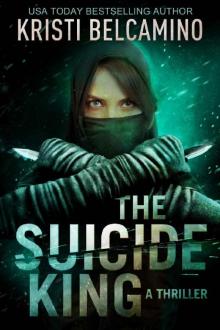 The Suicide King
The Suicide King Blood & Roses (Vigilante Crime Series)
Blood & Roses (Vigilante Crime Series)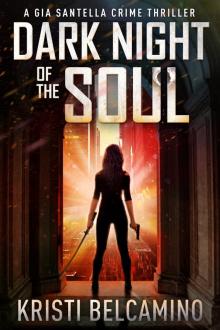 Dark Night of the Soul
Dark Night of the Soul Forgotten Island
Forgotten Island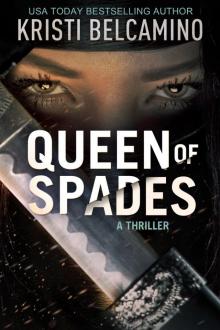 Queen of Spades
Queen of Spades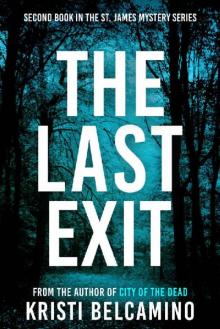 The Last Exit: A St. James Mystery (St. James Mysteries Book 2)
The Last Exit: A St. James Mystery (St. James Mysteries Book 2)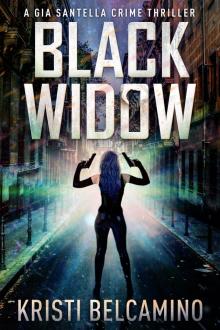 Black Widow
Black Widow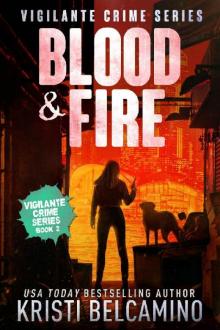 Blood & Fire (Vigilante Crime Series Book 2)
Blood & Fire (Vigilante Crime Series Book 2) End Game
End Game Buried Secrets
Buried Secrets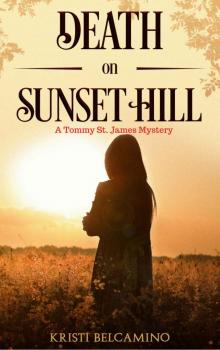 Death on Sunset Hill (A Tommy St. James Mystery Novella Book 2)
Death on Sunset Hill (A Tommy St. James Mystery Novella Book 2)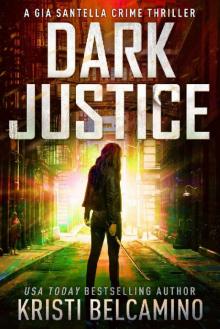 Dark Justice
Dark Justice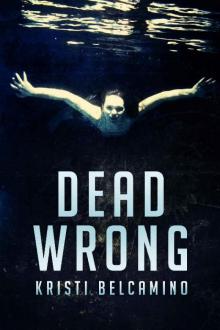 Dead Wrong
Dead Wrong No Way Out
No Way Out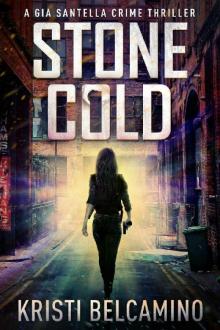 Stone Cold
Stone Cold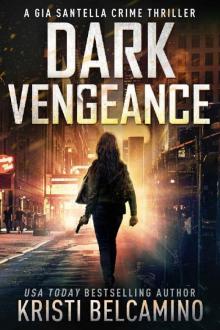 Dark Vengeance
Dark Vengeance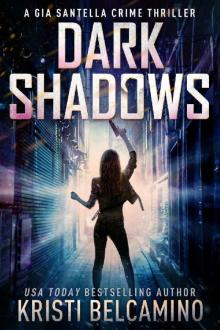 Dark Shadows (Gia Santella Crime Thrillers Book 11)
Dark Shadows (Gia Santella Crime Thrillers Book 11)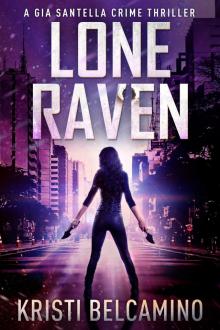 Lone Raven
Lone Raven![[Gia Santella 01.0] Gia in the City of the Dead Read online](http://i1.bookreadfree.com/i/03/16/gia_santella_01_0_gia_in_the_city_of_the_dead_preview.jpg) [Gia Santella 01.0] Gia in the City of the Dead
[Gia Santella 01.0] Gia in the City of the Dead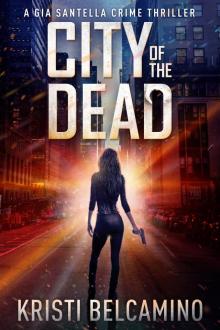 City of the Dead
City of the Dead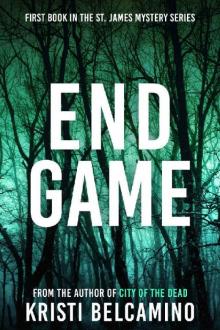 END GAME: A St. James Mystery (St. James Mysteries Book 1)
END GAME: A St. James Mystery (St. James Mysteries Book 1)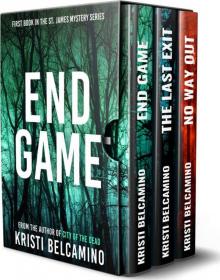 Tommy St James Mysteries Boxed Set
Tommy St James Mysteries Boxed Set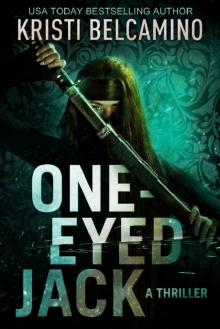 One-Eyed Jack
One-Eyed Jack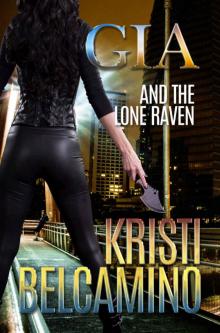 Gia and the Lone Raven
Gia and the Lone Raven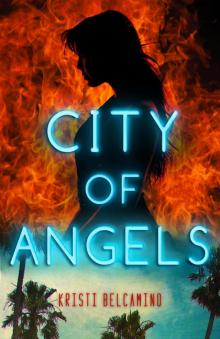 City of Angels
City of Angels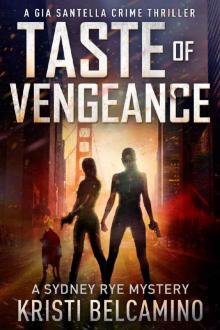 Taste of Vengeance
Taste of Vengeance Gia Santella Crime Thriller Boxed Set: Books 1-3 (Gia Santella Crime Thrillers)
Gia Santella Crime Thriller Boxed Set: Books 1-3 (Gia Santella Crime Thrillers) Death under the Stone Arch Bridge
Death under the Stone Arch Bridge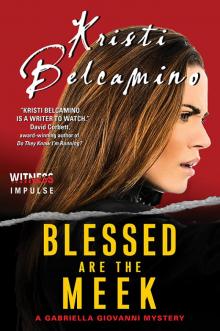 Blessed are the Meek
Blessed are the Meek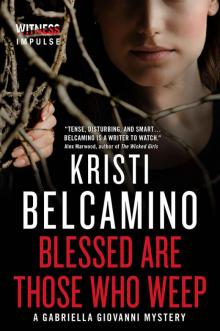 Blessed Are Those Who Weep
Blessed Are Those Who Weep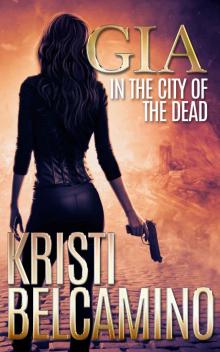 Gia in the City of the Dead
Gia in the City of the Dead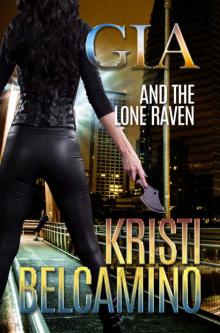 Gia and the Lone Raven (Gia Santella Crime Thriller - Novella Book 4)
Gia and the Lone Raven (Gia Santella Crime Thriller - Novella Book 4)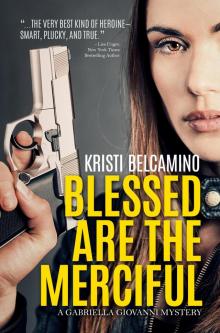 Blessed are the Merciful
Blessed are the Merciful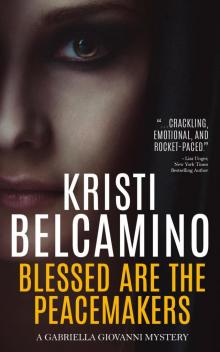 Blessed are the Peacemakers
Blessed are the Peacemakers Gia and the Forgotten Island (Gia Santella Crime Thriller Book 2)
Gia and the Forgotten Island (Gia Santella Crime Thriller Book 2)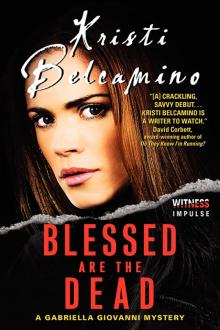 Blessed are the Dead
Blessed are the Dead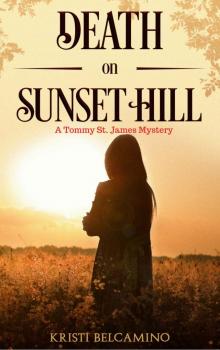 Death on Sunset Hill
Death on Sunset Hill